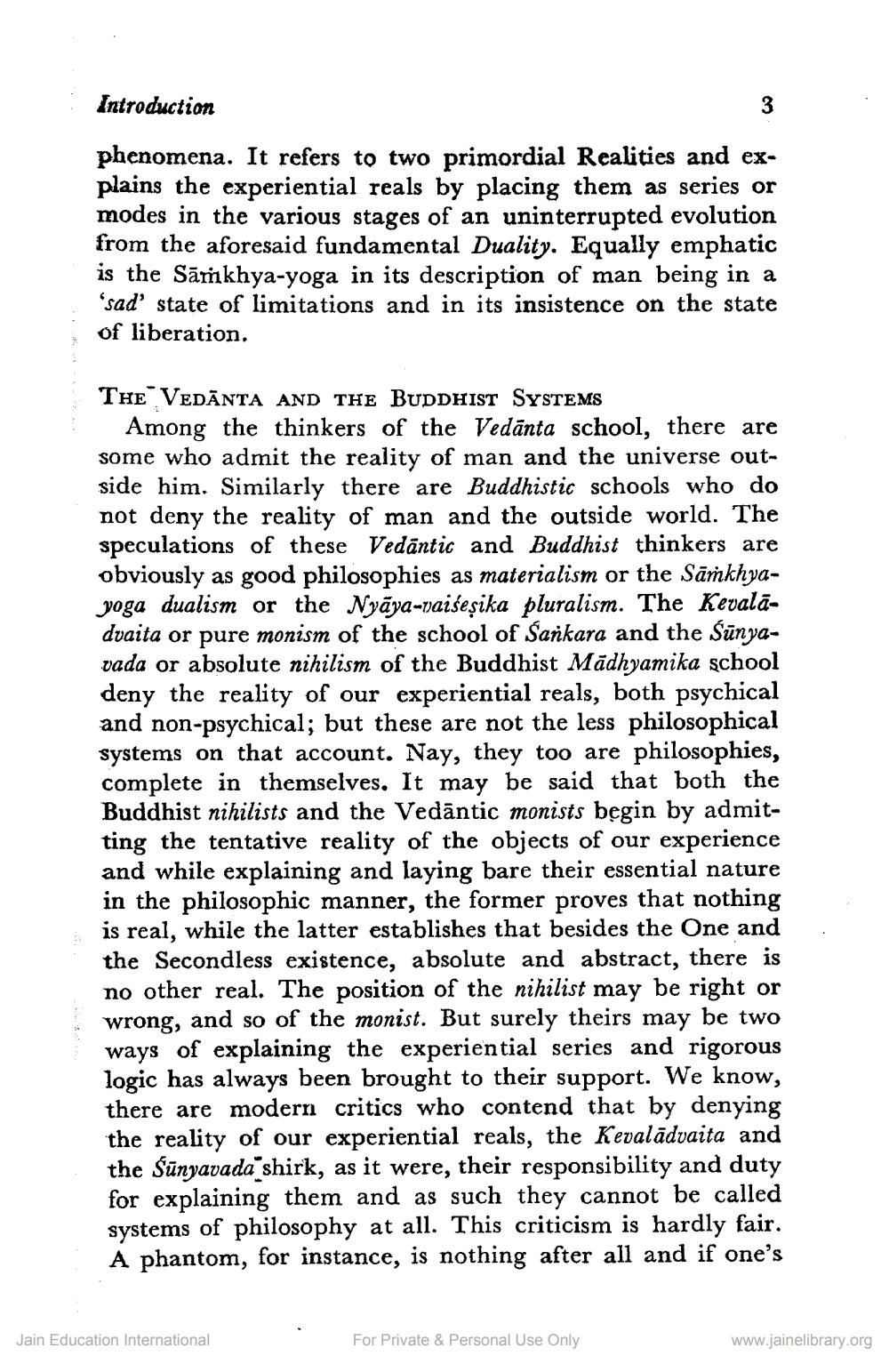________________
Introduction
phenomena. It refers to two primordial Realities and explains the experiential reals by placing them as series or modes in the various stages of an uninterrupted evolution from the aforesaid fundamental Duality. Equally emphatic is the Sāmkhya-yoga in its description of man being in a 'sad' state of limitations and in its insistence on the state of liberation.
THE VEDĀNTA AND THE BUDDHIST SYSTEMS
Among the thinkers of the Vedānta school, there are some who admit the reality of man and the universe outside him. Similarly there are Buddhistic schools who do not deny the reality of man and the outside world. The speculations of these Vedāntic and Buddhist thinkers are obviously as good philosophies as materialism or the Sāṁkhyayoga dualism or the Nyāya-raiseșika pluralism. The Kevalādvaita or pure monism of the school of Sankara and the Sünyavada or absolute nihilism of the Buddhist Mādhyamika school deny the reality of our experiential reals, both psychical and non-psychical; but these are not the less philosophical systems on that account. Nay, they too are philosophies, complete in themselves. It may be said that both the Buddhist nihilists and the Vedāntic monists begin by admitting the tentative reality of the objects of our experience and while explaining and laying bare their essential nature in the philosophic manner, the former proves that nothing is real, while the latter establishes that besides the One and the Secondless existence, absolute and abstract, there is no other real. The position of the nihilist may be right or wrong, and so of the monist. But surely theirs may be two ways of explaining the experiential series and rigorous logic has always been brought to their support. We know, there are modern critics who contend that by denying the reality of our experiential reals, the Kevalādvaita and the Sünyavada shirk, as it were, their responsibility and duty for explaining them and as such they cannot be called systems of philosophy at all. This criticism is hardly fair. A phantom, for instance, is nothing after all and if one's
Jain Education International
For Private & Personal Use Only
www.jainelibrary.org




